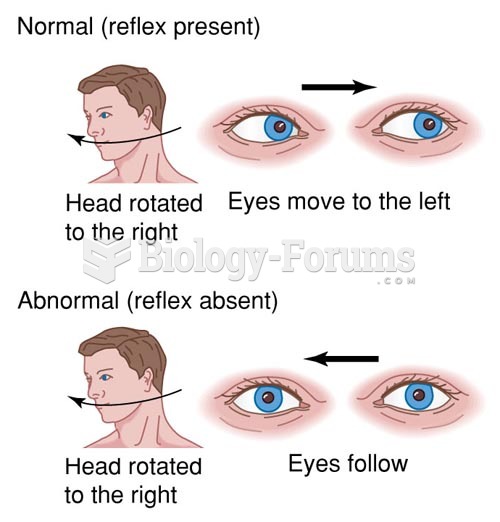|
|
|
The first oral chemotherapy drug for colon cancer was approved by FDA in 2001.
IgA antibodies protect body surfaces exposed to outside foreign substances. IgG antibodies are found in all body fluids. IgM antibodies are the first type of antibody made in response to an infection. IgE antibody levels are often high in people with allergies. IgD antibodies are found in tissues lining the abdomen and chest.
Urine turns bright yellow if larger than normal amounts of certain substances are consumed; one of these substances is asparagus.
The calories found in one piece of cherry cheesecake could light a 60-watt light bulb for 1.5 hours.
The term bacteria was devised in the 19th century by German biologist Ferdinand Cohn. He based it on the Greek word "bakterion" meaning a small rod or staff. Cohn is considered to be the father of modern bacteriology.







